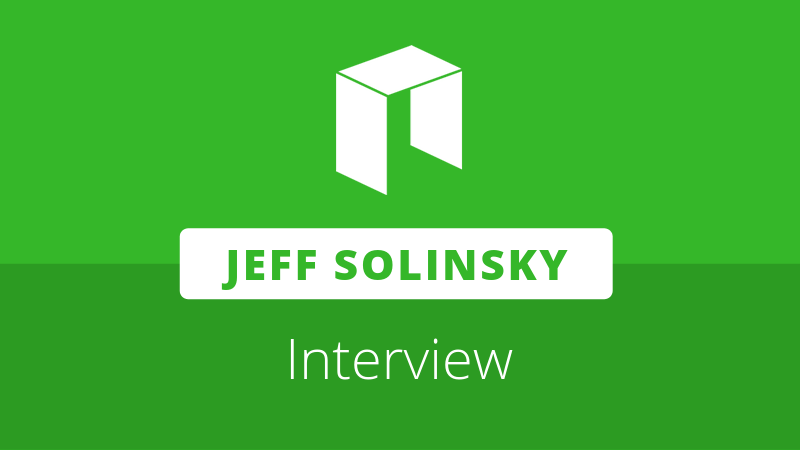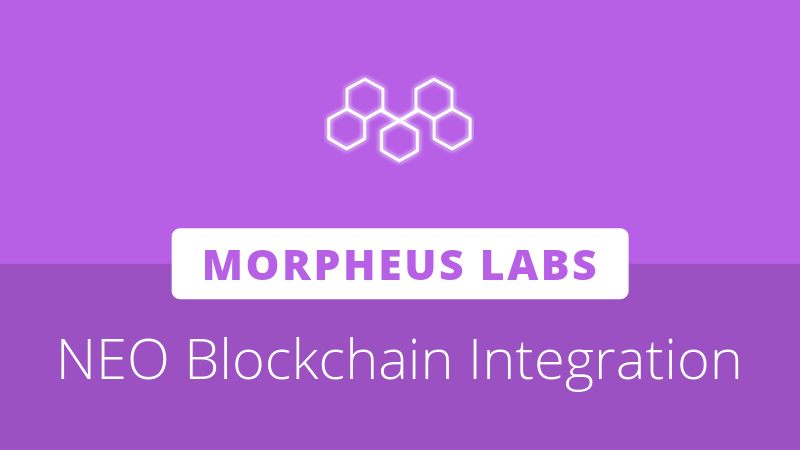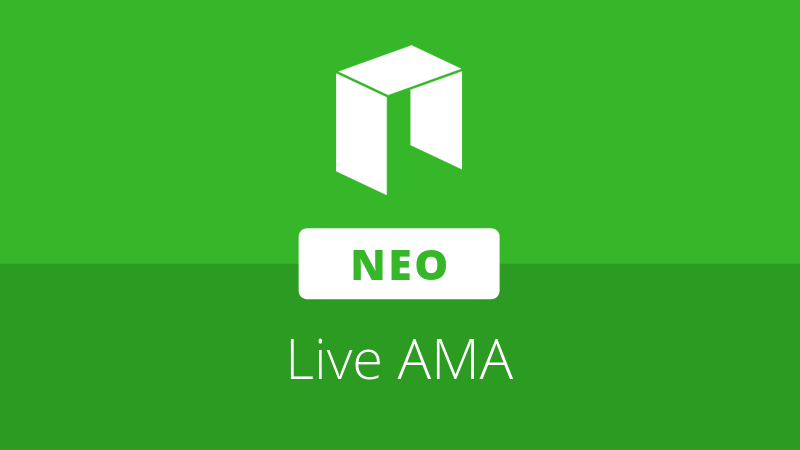
Jeff Solinsky’s path has taken him from all the way from a job at Amazon, to the NEO ecosystem, and back. Solinsky first made his name known to those involved with NEO as the lead developer of Aphelion’s wallet and decentralized exchange. Astute observation of the NEO blockchain led to Solinsky to make frequent commits to NEO’s core GitHub repo, evolving into a full-time stint as a NEO core developer. His work with NEO culminated in NEO’s 2.10.2 update which contains a number of his contributions to the blockchain’s consensus and transaction handling.
Solinsky has since been welcomed back at Amazon, but continues to contribute to NEO’s open-source codebase in his spare time. YouTube personality Robert “Crypto” Beadles reached Solinsky in southern California, where he gave a relaxed, wide-ranging interview that touched on programming, Bitcoin, NEO, and his Christian faith.
Programming
“I’ve been writing software for 15 years.” Solinsky explained when asked about his start. “At the beginning, I worked in traffic software, controlling traffic lights.” He eventually landed a job at Amazon, which took him to California and led towards development of faster-moving technology. “I started following crypto back in 2014, and from that, [I] followed a lot of the projects…just looking at code, and seeing what I believed in.” This path eventually led him towards a full-time job as development lead of Aphelion’s cryptocurrency exchange.
Bitcoin
Beadles correctly surmised that Solinsky’s early research involved reading Satoshi Nakamoto’s whitepaper, and looking directly at Bitcoin’s code.
When asked what struck him about cryptocurrency’s largest project, Solinsky answered, “Probably…the implications on the banking industry in general. The ability for people to hold their own keys and control their own assets without a third party…that was the main thing.” Solinsky added that he saw that Bitcoin did not have “a lot of on-chain scaling solutions in the beginning,” so his interests took him towards Layer 2 scaling solutions (state channels) and atomic swap implementations. He also got involved with programmable blockchains, including the Ethereum and NEO projects.
NEO
“If you really want to do things in business with blockchain, then you want to have finality. You want to be able to write contracts and make code that is going to reach final states very quickly,” Solinsky explained. He elaborated, adding, “The way Ethereum works today, no blocks are final; it’s still the longest chain wins…How much finality do you want? Eventually, you may say, ‘6 blocks, 10 blocks, 24 blocks.’ How many blocks do you need? It just depends how much compute power you believe is out there, right, and how much is securing the Ethereum chain. Definitely, people could double-spend if you just go with a block or two.”
“Something like NEO, they’re using an algorithm where there’s finality after one block, because it uses a BFT algorithm where two-thirds of the nodes have to agree to produce the block.”
Looking forward, Solinsky was eager to see certain aspects of NEO 3.0 come to fruition, especially those efforts aimed at making the blockchain more accessible to developers and programmers.
“I think it’s pretty cool the solution they have for oracles [that] they’re working on, [also] the solutions they’ve got for NeoFS…[and] some of the main features of NEO 3.0 that make it so easy to write smart contracts, whereas before you had to deal with UTXO problems – that stuff’s going away…The other major thing I think is the economic model. They’ve changed the way that NEO is going to charge for executing contracts, which is going to make it a lot more affordable to deploy contracts and get going on the platform.”
The full interview can be found at the below link:
https://www.youtube.com/watch?v=1Vlg7SJxXp0
Jeff Solinsky is a NEO core developer.







About The Author: Colin Closser
Colin Closser, M.D., was a speaker at the first NEO DevCon in San Francisco. A devoted contrarian, he has managed the improbable: a peaceful and healthy life, despite holding a medical degree. He aspires towards the wisdom of Michael Lewis and Nassim Nicholas Taleb.
More posts by Colin Closser